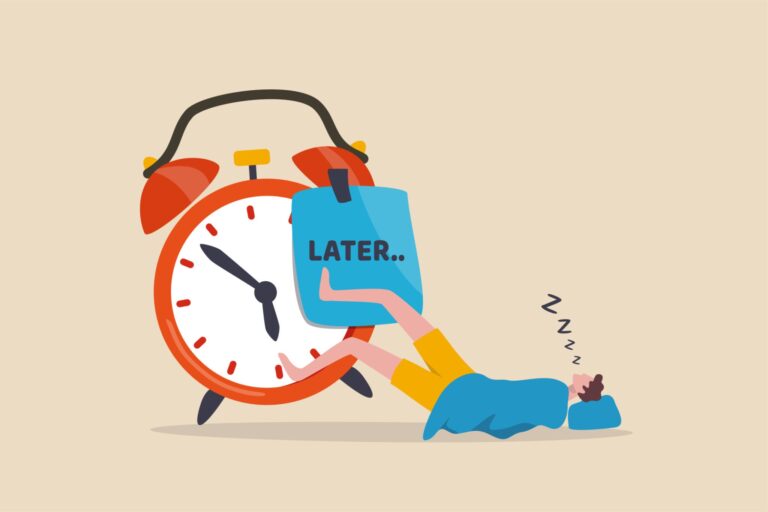Procrastination is the act of unnecessarily postponing decisions or actions, despite knowing that it would be better to start sooner. It involves an intention-action gap, where people delay tasks they intend to complete.
Common signs of procrastination include repeatedly saying ‘I’ll do it later,’ struggling to get started on tasks, and working on trivial things instead of important priorities. Procrastination is often caused by prioritizing short-term mood over long-term goals, as well as finding tasks aversive or unpleasant.
While procrastination is not the same as laziness, it can lead to negative outcomes like missed deadlines, increased stress, and feelings of guilt.
Procrastination is a common challenge, but there are effective strategies to overcome it. Here are the key steps:
- Admit you are procrastinating and recognize the negative impacts it can have.
- Choose a dedicated, distraction-free study location to work.
- Eliminate distractions like phone notifications to stay focused.
- Break large tasks into smaller, more manageable goals that you can easily accomplish.
- Join a study group to stay accountable and motivated.
- Reward yourself after completing tasks to reinforce good habits.
- Make the rewards for taking action more immediate and the consequences of procrastination more immediate.
- Use the 2-Minute Rule to make it easier to get started on tasks.
By implementing these strategies, you can overcome procrastination and become more productive.
The key is to be honest with yourself, create the right environment, and use techniques that make it easier to take action.



